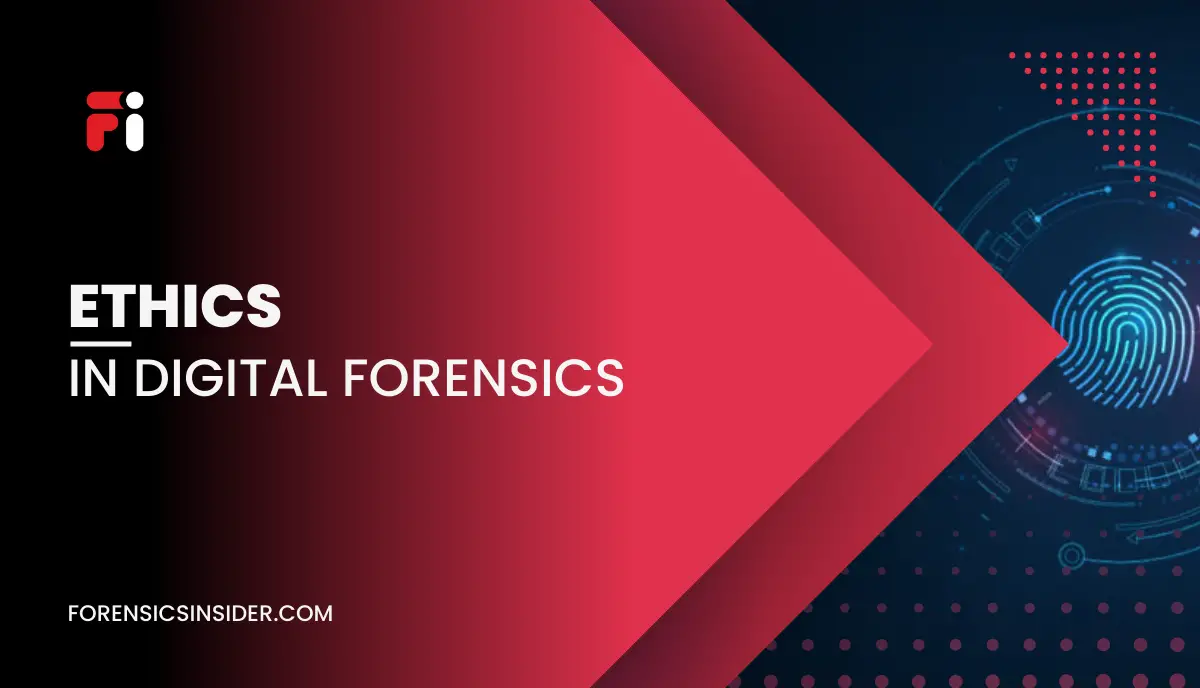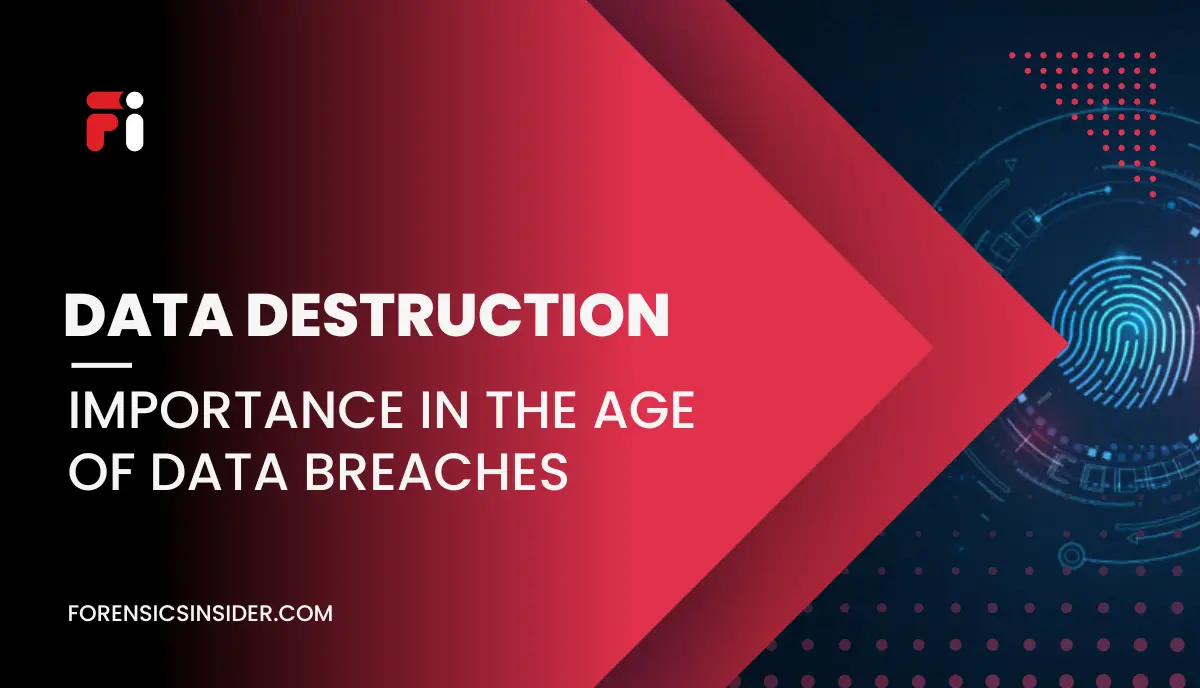Digital Forensics is an essential aspect of modern day investigation , but it also takes away from various ethical considerations that one should keep in mind while practicing. The extravagant rise of digital technology not only facilitates people but also gives birth to various new challenges related to digital privacy and security. There rises a concern regarding the ethical use of digital forensics. Whereas digital forensics ethics is a crucial for organizations and for law enforcement, it also raises a concern about how investigation balances their needs and maintaining privacy concerns of the individuals on the other hand.
The purpose of this article is to give you immense knowledge about ethics in digital forensics and how ethics in digital forensic is important and what are some common ethical standards in digital forensics.
What are Ethics?
Before jumping into digital forensics code of ethics, let’s take a look towards what ethics actually mean. Ethics are the sets of moral standards that tell what is right and what is wrong. It guided an individual what ought to do or what not, their rights, obligation and boundaries to perform an activity.
Digital forensics ethics are a set of certain guidelines that guide them to execute the investigation in a correct manner. And one should follow these codes of conduct. It is crucial for us to make sure that there are no injustices committed in the investigative process in the field of digital forensics. One of us may have the same situation one day.
Main Principles of Ethical Behavior in Digital Forensics
Digital Forensics ethical behavior includes:
1. Objectivity
Digital forensic investigators must be impartial and objective in their investigations. You must avoid any bias, or conflict of interest that could influence your judgement.
2. Confidentiality
Every piece of information found during the investigation is kept confidential in accordance with digital forensics ethics. Unless required by law, an authorized client, or an organization, no information will be divulged..
3. Integrity
Investigators must act with integrity and honesty in all aspects of their work. They must not tamper with or alter evidence, and their methods and conclusions must be transparent.
4. Competence
Researchers should have the necessary knowledge, skills and training to do their job competently. They must constantly update their skills and knowledge to keep up with advances in technology and maintain digital forensics ethics.
5. Compliance
Investigators must comply with all legal and ethical requirements related to digital forensics. They must also follow their organization’s or client’s policies and procedures.
6. Respect
Investigators should treat all parties involved in an investigation with respect and professionalism. You must respect the privacy and human rights of individuals and not discriminate based on race, gender, religion or any other factor.
These principle ethics in digital forensics helps to ensure that the investigations are conducted ethically and professionally with proper protection of privacy, integrity, without any biases and maintain the credibility of the investigation process.
Role of Ethics in Digital Forensics
The role of ethics in Digital forensic is crucial. With the rise of the digital age, new ethical challenges also came into existence for those who are working in the field of forensics. As we are increasingly moving towards the digital world, so is the crime we commit. Therefore it is essential for digital Forensics experts to perform their investigation on ethical standards so that their work is conducted fairly and legally.
Ethics in Digital Forensics plays a vital role for several reasons:
1. Protection of Right and Privacy
The first and foremost role of ethics in digital forensics is the protection of the right and privacy of an individual. Digital Forensics code of ethics are essential to make sure that the privacy and rights of an individual keeps safe during the process of investigation.
2. Maintaining Evidence integrity
It is easy to manipulate, modify, or destroy digital evidence. Ensure that digital evidence is extracted, gathered, preserved, analyzed so that it can be admissible in a court of law by following the principles of ethical digital forensics.
3. Ensuring Legal Compliance
Performing Digital Forensics under a court’s jurisdiction is essential. Ethics in digital forensics is important to make sure that all the investigation is taking place under the premise of the court of law or under the legal and regulatory requirements.
4. Building Trust and Authenticity
Digital Forensics ethics are essential to build trust and credibility between the forensics investigators and the client. It ensures that the investigation takes place with no bias or modification. It is completely fair and pure from the point of extracting trust.
Challenges in maintaining ethics in digital forensics investigation
Investigations using digital forensics frequently include gathering and analyzing sensitive material. Personal data, financial information, and other private data are examples of this. Maintaining ethical behavior throughout these investigations is vital to protecting the rights of all involved and ensuring the inquiry runs smoothly.
Maintaining ethics in digital forensics investigations can be challenging for a variety of reasons. First, investigators could feel pressured to make quick decisions in an effort to save time or money. This might lead to the investigation’s integrity being compromised by taking quick cuts.
Second, other people who are participating in the inquiry might put pressure on you to break the law or use a shortcut. This is especially true if the inquiry has a short deadline. Lastly, several digital forensic tools and methodologies may be misused if misused improperly. A faked or misconstrued piece of data can compromise the integrity of the entire investigation.
Despite these difficulties, maintaining ethics in digital forensics investigation is crucial. Shortcuts and rule-bending by investigators run the danger of jeopardizing the entire probe and undermining public confidence in their work. Keeping high ethical standards ensures fairness and unbiased investigation and proper handling of sensitive material
Wrapping UP
Digital Forensics code of conduct is important to conduct a fair investigation. It is important to maintain the dignity, authenticity, credibility of the digital forensics investigation. By following these ethical standards you can protect the investigation integrity and produce reliable results. As far as the concern of digital forensics ethics is concerned, it’s not only important for the practice but it is essential for a favorable outcome.




